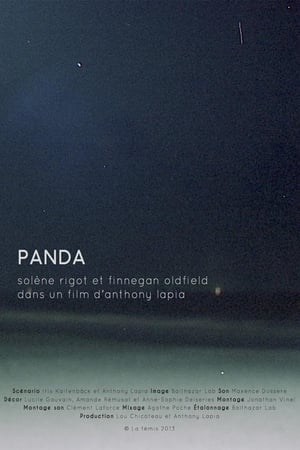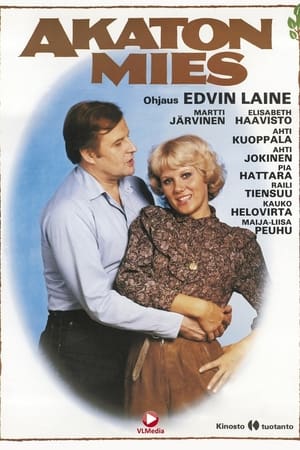

Caligari: When Horror Came to Cinema(2014)
On February 26, 1920, Robert Wiene's world-famous film The Cabinet of Dr. Caligari premiered at the Marmorhaus in Berlin. To this day, it is considered a manifesto of German expressionism; a legend of cinema and a key work to understand the nature of the Weimar Republic and the constant political turmoil in which a divided society lived after the end of the First World War.



Movie: Caligari: When Horror Came to Cinema
Top 5 Billed Cast
Self - Narrator (voice)
Self
Self
Self
Self

Caligari — Wie der Horror ins Kino kam
HomePage
Overview
On February 26, 1920, Robert Wiene's world-famous film The Cabinet of Dr. Caligari premiered at the Marmorhaus in Berlin. To this day, it is considered a manifesto of German expressionism; a legend of cinema and a key work to understand the nature of the Weimar Republic and the constant political turmoil in which a divided society lived after the end of the First World War.
Release Date
2014-02-12
Average
6.7
Rating:
3.4 startsTagline
Genres
Languages:
DeutschFrançaisKeywords
Recommendations Movies
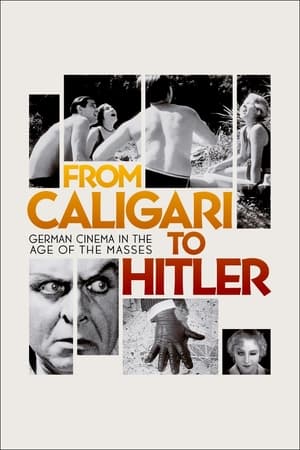 7.4
7.4From Caligari to Hitler(de)
Film journalist and critic Rüdiger Suchsland examines German cinema from 1919, when the Republic of Weimar is born, to 1933, when the Nazis come into power. (Followed by Hitler's Hollywood, 2017.)
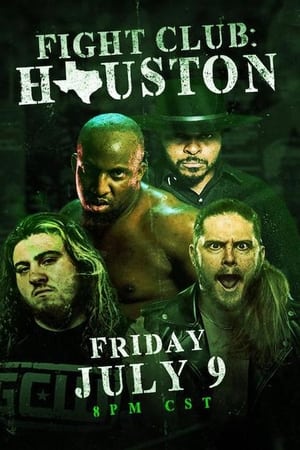 7.5
7.5GCW: Fight Club Houston(en)
On July 9th GCW presents Fight Club Houston straight from Premier Arena in Houston, Texas. The lineup is almost completed, check it below: AJ Gray vs Bryan Keith Nick Gage vs Sadika Joey Janela vs Dante Ninja Mack vs Jack Cartwheel Effy vs Gino Jimmy Lloyd vs Carter Lucha Scramble .... more to be added soon!
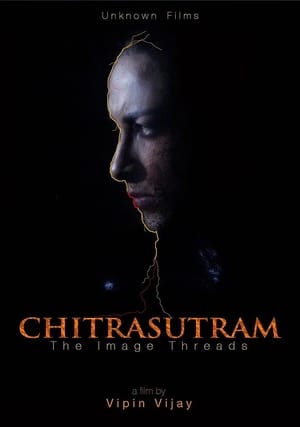 4.0
4.0The Image Threads(ml)
A computer teacher, his black-magician grandfather, and a female cyber-creature promote a series of pre-destined rendezvous, both online and offline, over the shreds of mnemonic time and space, at the cleavages of various parlors of subculture. The film explores the possible correlation of digital aesthetics and black art, situated in post-human consciousness.
 4.5
4.5Reborn with You(ko)
Beyond the TV screen, one day, as the speaker observes women in a distant land struggling for their lives, he decides to be reborn together in a land of freedom where the risk of contamination by anyone's gaze is eliminated, after dedicating his hair to his remains.
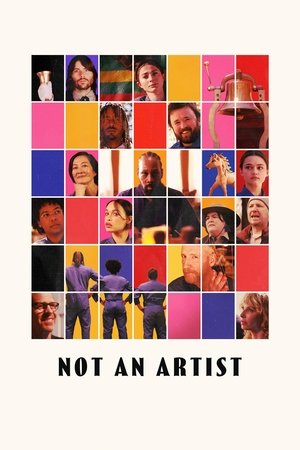 0.0
0.0Not an Artist(en)
In an exclusive artist-in-residency program overseen by an enigmatic patron (RZA), artists in turmoil face a make-or-break ultimatum: unlock their full creative potential or abandon art forever. Yet, the unexpected intrusion of an outsider (Matt Walsh) jeopardizes the program's delicate balance.
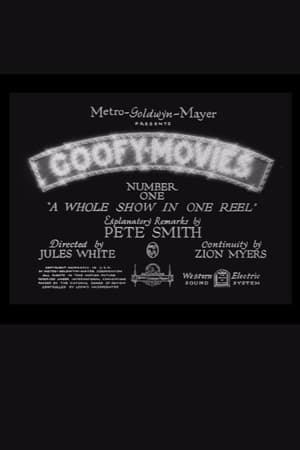 5.7
5.7Goofy Movies Number One(en)
The first part of this short is a "Metrophony" newsreel. It contains actual newsreel footage with humorous commentary (e.g., a flotilla of gondolas is parodied as being the Harvard/Yale regatta). The second part parodies silent movies with a film called "Minnie the Pretzel Twister" starring 'Cynthia Goosefeather.'
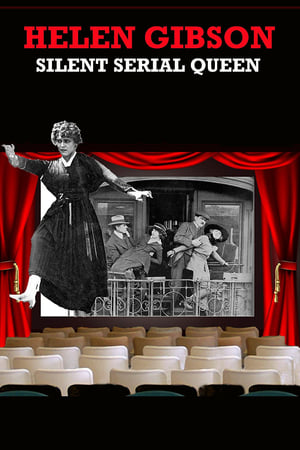 5.0
5.0The Wrong Train Order(en)
In this episode everything goes wrong. Helen ends up on the rear observation deck of a runaway express train with the door to the inside closed, with the air-brake of the engine damaged, the engine itself full of steam and inaccessible, and the train speeding ahead on the wrong track.
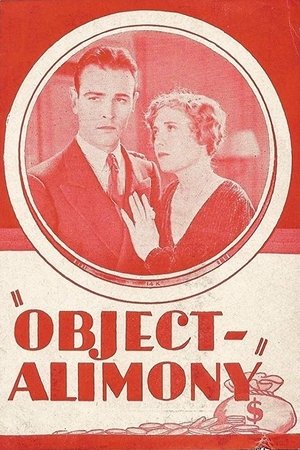 6.0
6.0Object: Alimony(en)
Ruth Butler, a clerk in an emporium, marries Jimmy Rutledge and thereby greatly displeases his mother, the owner of the emporium, because of Ruth's lowly origins. Renaud Graham, one of Mrs. Rutledge's friends, becomes interested in Ruth, forces his way into her apartment, and attempts to make violent love to her. Jimmy walks in on their embrace and, suspecting the worst, leaves Ruth. In the family way, Ruth finds refuge in a boardinghouse where she meets Al Bryant, an aspiring writer. Ruth tells Al her life story, and he makes it into a bestselling novel and then into a play. Jimmy sees the play and comes to his senses, winning Ruth's forgiveness.
Girls Fight Club(en)
The best women's wrestling competition of all time...and if you think it's fake you're in for a big surprise See LEGENDARY Mixed Martial Arts fighters coach their teams to victory in the cage! aka Chuck Lidell's Girl's Fight Club
Death: The Ultimate Mystery(en)
An examination of reincarnation, regression, and other life-after-death subjects.
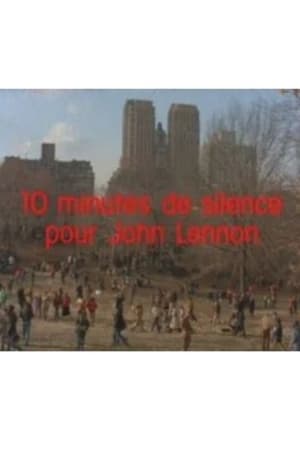 6.7
6.7Ten Minutes of Silence for John Lennon(fr)
The documentary is about the ceremony dedicated by American people to John Lennon after his murder. The 10 minutes of silence in New York's Central Park allows a deep observation of the particularly immobile people.
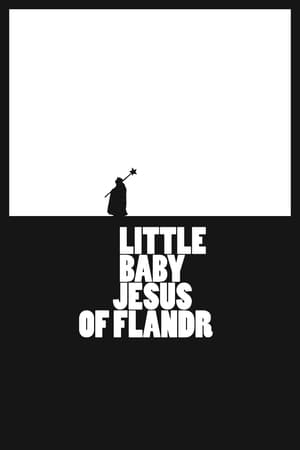 7.3
7.3Little Baby Jesus of Flandr(nl)
When the three beggars Suskewiet, Pitje Vogel and Schrobberbeeck are tired of their poverty and hunger, they decide to sing Epiphany on Christmas Eve. Their plan is a triumph and they sing themselves rich. On the way back to the pub however, they get lost in the woods and witness the birth of Little Baby Jesus. Bedazzled by this miracle they decide to give away all their gifts. When next year Christmas is around, they decide to sing again. But puzzled by last year experience, they start to quarrel over the gifts. Our three friends fall apart and each go their own way.
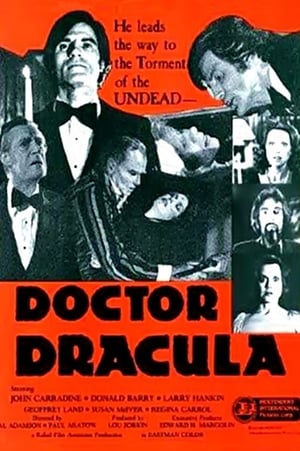 4.0
4.0Doctor Dracula(en)
An evil hypnotist puts a beautiful woman under his spell.
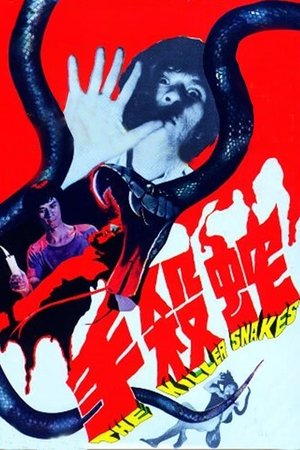 6.4
6.4The Killer Snakes(zh)
A young man who has been beaten, abused, humiliated and laughed at all his life finds that he has an unusual empathy with snakes. He can talk to them and they understand him, and eventually he finds that he can get them to do his bidding. He decides to use his newfound friends to take his revenge on everyone who ever did him wrong.
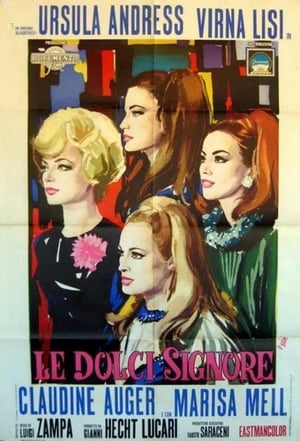 3.9
3.9Anyone Can Play(it)
In this delightful romantic comedy, four beautiful women attempt to deal with their sexual frustrations in fashionable Rome society.
Similar Movies
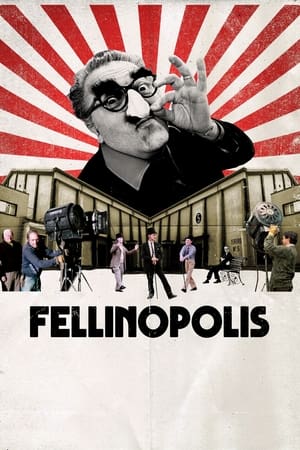 6.5
6.5Fellinopolis(it)
Ferruccio Castronuovo was the only authorized eye, between 1976 and 1986, to film the brilliant Italian filmmaker Federico Fellini (1920-1993) in his personal and creative intimacy, to capture the gears of his great circus, his fantastic lies and his crazy inventions.
 6.1
6.1Las cinéphilas(es)
Six elderly retired women, two from Buenos Aires, Argentina; two from Montevideo, Uruguay; and two from Madrid, Spain, have something in common, despite their different interests and lives: they go to the movies almost every day.
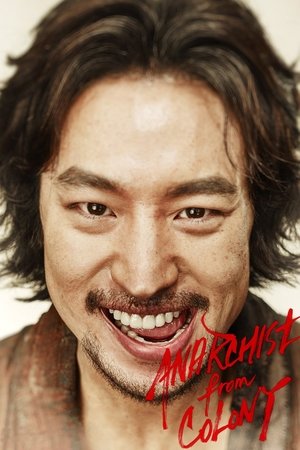 7.4
7.4Anarchist from Colony(ko)
Based on the life of the Korean anarchist Park Yeol, the film shows his struggle to counter the massacre of Koreans by the government during the 1923 great Kanto earthquake, focusing on his activities as the leader of the anti-Japanese organization Bulryeongsa and his relationship with Japanese comrade Fumiko Kaneko.
 7.1
7.1The Arrival of a Train at La Ciotat(fr)
A group of people are standing along the platform of a railway station in La Ciotat, waiting for a train. One is seen coming, at some distance, and eventually stops at the platform. Doors of the railway-cars open and attendants help passengers off and on. Popular legend has it that, when this film was shown, the first-night audience fled the café in terror, fearing being run over by the "approaching" train. This legend has since been identified as promotional embellishment, though there is evidence to suggest that people were astounded at the capabilities of the Lumières' cinématographe.
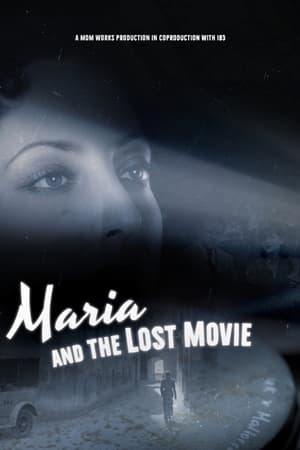 7.0
7.0Maria and the Lost Movie(ca)
The pianist Miguel Ángel Lozano embarks on a personal and artistic journey with the purpose of reconstructing the life of his grandmother, Maria Forteza (1910-60), singer and pioneer of Spanish sound films.
 6.9
6.9The Tin Drum(de)
Oskar Matzerath is a very unusual boy. Refusing to leave the womb until promised a tin drum by his mother, Agnes, Oskar is reluctant to enter a world he sees as filled with hypocrisy and injustice, and vows on his third birthday to never grow up. Miraculously, he gets his wish. As the Nazis rise to power in Danzig, Oskar wills himself to remain a child, beating his tin drum incessantly and screaming in protest at the chaos surrounding him.
 7.6
7.6The Last Emperor(en)
A dramatic history of Pu Yi, the last of the Emperors of China, from his lofty birth and brief reign in the Forbidden City, the object of worship by half a billion people; through his abdication, his decline and dissolute lifestyle; his exploitation by the invading Japanese, and finally to his obscure existence as just another peasant worker in the People's Republic.
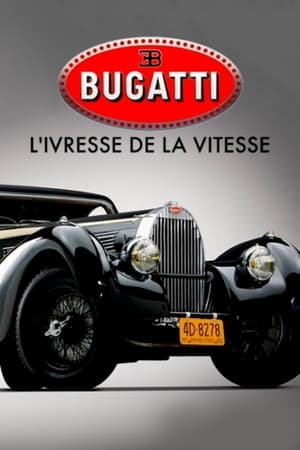 6.7
6.7Bugatti: A Thirst for Speed(de)
The story of the Bugattis of Milan and Molsheim, the eccentric family behind the brand: Carlo, the patriarch and furniture designer; Rembrandt, the troubled sculptor; Ettore, the gifted engineer; Jean, the unfortunate heir. Art and design. Beauty and luxury. The fastest cars. Races. The need for speed.
 6.4
6.4Hitler's Hollywood(de)
Film journalist and critic Rüdiger Suchsland examines German cinema from 1933, when the Nazis came into power, until 1945, when the Third Reich collapsed. (A sequel to From Caligari to Hitler, 2015.)
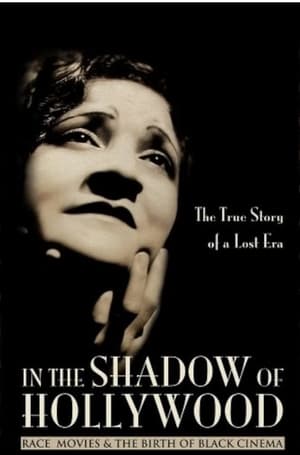 6.5
6.5In the Shadow of Hollywood: Race Movies and the Birth of Black Cinema(en)
This documentary captures the sounds and images of a nearly forgotten era in film history when African American filmmakers and studios created “race movies” exclusively for black audiences. The best of these films attempted to counter the demeaning stereotypes of black Americans prevalent in the popular culture of the day. About 500 films were produced, yet only about 100 still exist. Filmmaking pioneers like Oscar Micheaux, the Noble brothers, and Spencer Williams, Jr. left a lasting influence on black filmmakers, and inspired generations of audiences who finally saw their own lives reflected on the silver screen.
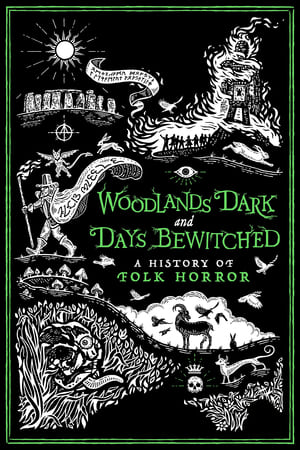 7.4
7.4Woodlands Dark and Days Bewitched: A History of Folk Horror(en)
An exploration of the cinematic history of the folk horror, from its beginnings in the UK in the late sixties; through its proliferation on British television in the seventies and its many manifestations, culturally specific, in other countries; to its resurgence in the last decade.
Bičianka z doliny(sk)
A TV adaptation of Zuzka Zguriška's novel of the same name. The story takes place in a characterful Slovak village. It shows a picture of the inhabitants of Myjava in the 1920s, where there is no lack of freshness, brightness, liveliness and cheerfulness. The main character, a wealthy patriarchal ruler, orders her three adult sons around. She refuses to acknowledge her son's love; she does not want a poor bride. She enjoys the rich Susanna, whom the second son marries. After many convoluted and humorous transformations, the poor girl nevertheless wins the seemingly stony heart of the Scourge.
 6.1
6.1The Case of Bruno Lüdke(de)
The incredible story of Bruno Lüdke (1908-44), the alleged worst mass murderer in German criminal history; or actually, a story of forged files and fake news that takes place during the darkest years of the Third Reich, when the principles of criminal justice, subjected to the yoke of a totalitarian system that is beginning to collapse, mean absolutely nothing.
Auge in Auge - Eine deutsche Filmgeschichte(de)
This is not merely another film about cinema history; it is a film about the love of cinema, a journey of discovery through over a century of German film history. Ten people working in film today remember their favourite films of yesteryear.
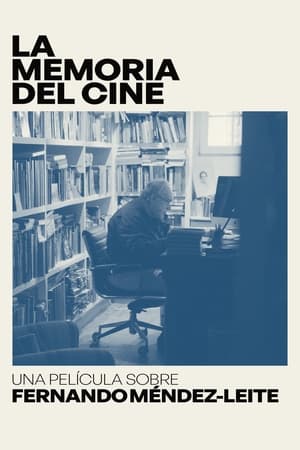 6.4
6.4The Memory of Cinema: A Film About Fernando Méndez-Leite(es)
A look at the life and work of Spanish filmmaker and film critic Fernando Méndez-Leite, as he writes his memoirs and a novel with autobiographical resonances.
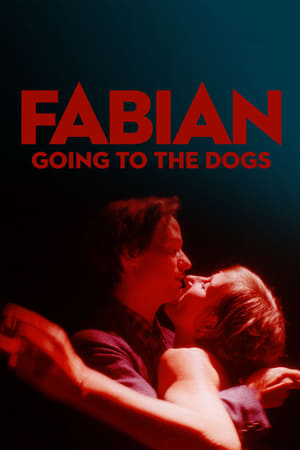 6.5
6.5Fabian: Going to the Dogs(de)
In 1930s Berlin, Dr. Jakob Fabian, who works by day in advertising for a cigarette company and by night wanders the streets of the city, falls in love with an actress. As her career begins to blossom, prospects for his future begin to wane.
 6.5
6.5Robert Redford: The Golden Look(fr)
More than anyone in the cynical film industry, legendary artist Robert Redford embodies the United States' brightest side: perseverance, independence, idealism, and integrity. A champion of active environmentalism and the right to openly criticize any institutional abuse, he has put his artistic work at the service of his political commitments, whether as an actor, director, producer, or founder of the Sundance Festival, a formidable forum for his struggles since 1985.
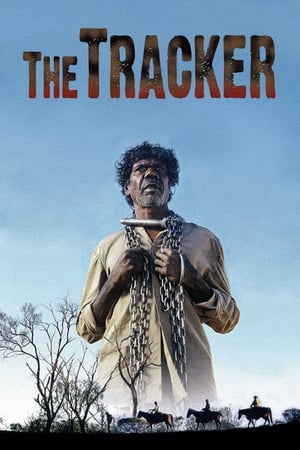 6.9
6.9The Tracker(en)
Somewhere in Australia in the early 20th century outback, an Aboriginal man is accused of murdering a white woman. Three white men are on a mission to capture him with the help of an experienced Indigenous man.
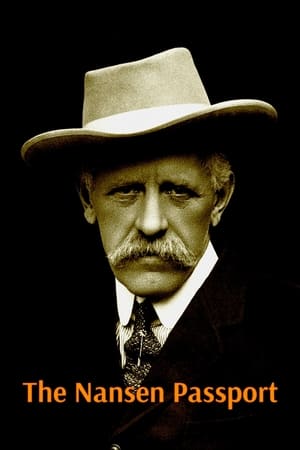 8.0
8.0The Nansen Passport(fr)
On July 5th, 1922, Norwegian explorer, scientist and diplomat Fridtjof Nansen creates a passport with which, between 1922 and 1945, he managed to protect the fundamental human rights as citizens of the world of thousands of people, famous and anonymous, who became stateless due to the tragic events that devastated Europe in the first quarter of the 20th century.
